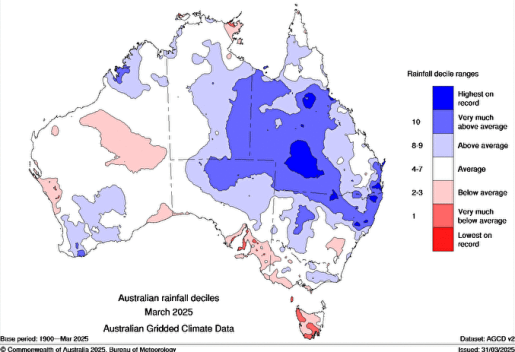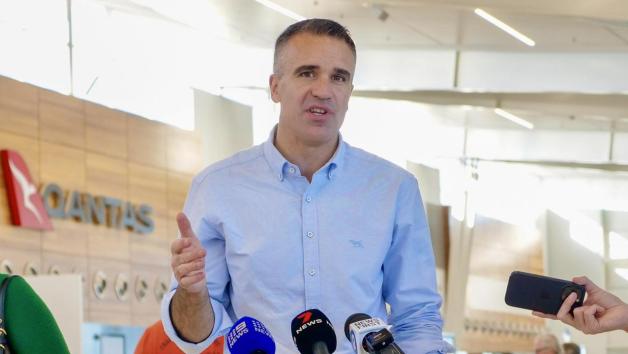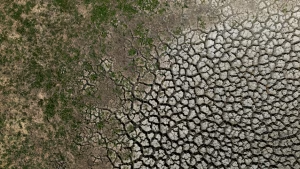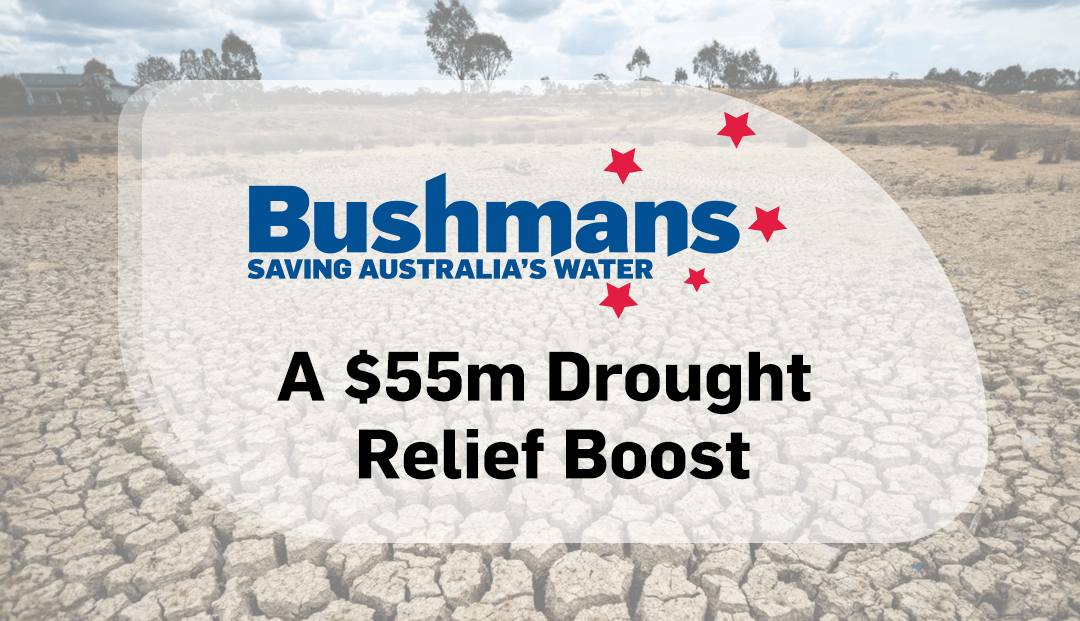To combat the ongoing dry conditions, water production at SA’s desalination plant has been producing four to six times more water supply (around 300 million litres of water per day) in the hopes to avoid a repeat of the Millennium Drought – one of the worst droughts in Australia’s history.
However, despite the desalination plants ongoing production for the past decade, it has provided tremendous relief – but even with a boosted water production, it’s still not enough to tackle one of the driest years SA has faced in more than two decades.
Water is running out
Last month in March 2025, drought-stricken farmers made a desperate plea for more assistance – now. The drought has caused a plethora of issues over the last few months; from crop losses and dry damns to financial strain and livestock maintenance – just a few significant challenges farmers have been facing.
Livestock SA CEO Travis Tobin commented on the devastating impact that farmers, especially those with livestock, would suffer “For a lot of livestock businesses, recovery from this will take years.”
A Mid North farmer, Andrew Kitto, made a plea from the steps of Parliament House “This is the first time in my lifetime I have never seen the crop make it to a head to reap any grain”

Kitto continued to explain the dire situation many farmers are facing “It is really serious because water is running out, in the last three weeks bores have run dry; the dams are dry”. While enduring these extreme dry times, some farmers have had to rely on water-carting instead, which for a variety of reasons including cost, health and safety concerns, is not a recommended solution.
The Premier’s response
Yesterday, SA Premier Peter Malinauskas responded with an additional $55m drought relief fund, agreeing that applications under the state government’s scheme to assist farmers had taken far too long to process. This scheme was announced in November 2024, with funding to go towards infrastructure upgrades, rebates, financial counselling, and mental health support.

Premier Peter Malinauskas went on record stating “I’ve been frustrated about some of the time it’s taken the bureaucracy to respond to these applications — I can’t imagine how much more frustrating it is for someone who actually needs the support.”
He continued to assure that processing these applications are a priority, after commenting that he had urged the Department of Premier and Cabinet to speed up this process. “I’ve been given advice that I can assure people that it will take no more than 30 days to get these applications processed.”
Funding allocations
Alongside the $55m drought relief fund, $4m of that is additionally set to help charities transporting donated hay to livestock farmers.
Michael O’Keefe from the Farmers Relief Agency has expressed his hope that this extra funding would allow the agency to get more hay out to farmers in need. Mr O’Keefe commented on this crucial funding that assists the agency “They think, ‘Oh well, I’ll go and buy some more hay’, and then they realise that the price of hay is through the roof and transport costs are a lot of money, [so] they can’t really afford it.”
Another $13m from this funding will go directly towards rebates for infrastructure grants, which had previously been capped at $5,000 with a 25% commitment and co-contribution from the farmer.
Primary Industries Minister Clare Scriven shared valuable feedback from the industry, commenting that “we should actually increase that to $20,000 with a 50 per cent co-contribution”. The Primary Industries Minister continued to say that “The $5,000 grants will continue as well so there’ll be streams that will address a variety of different needs.”
“It’s been designed with farmers to both look at what the immediate supports are that they need to get through day to day as they’re facing one of the worst droughts that they’ve experienced, as well as preparing for the ongoing issues of drought,” she said.

Further funding resource assistance;
- $2.5m into mental health support resources
- $1m in rural financial counselling support
- $2.5m for standpipes upgrades
- $4.5m in eID for sheep and farmed goats
- $17.4m for future drought fund preparedness
- Plus more
With applications set to be processed within a 30 day timeframe, funding to farmers in need of this support will hopefully be issued within the next few weeks.
- Read up on the entire Malinauskas State Government $55m additional funding media release
- A recap about SA’s desalination plant
- Find out if you’re eligible for these government support schemes here
- Bushmans teams up with Dr. Anika Molesworth for Global Water Awareness Month

